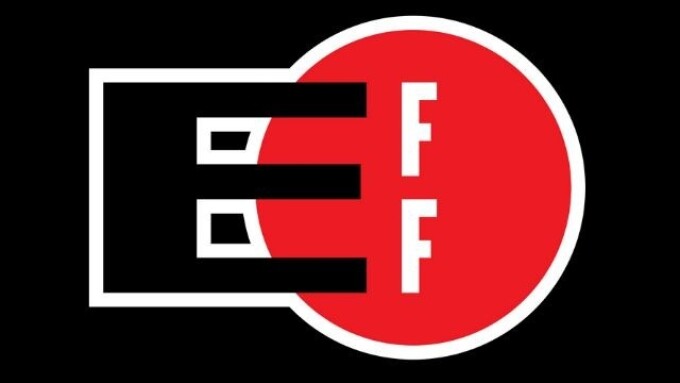SAN FRANCISCO — The Electronic Frontier Foundation, troubled over a proposal to install a new regime in the U.K. to restrict access to sexually explicit material, said that a portion of the Digital Economy Bill introduced this week gives the organization “serious concern.”
On Tuesday, the U.K. government published the bill, which includes a section that if passed would create an age-verification regulator that could impose financial penalties of up to £250,000 for noncomplying adult entertainment sites that stream content into the nation.
The regulator would be charged with handing out fines also to offending sites’ payment service providers and advertisers — whether in the U.K. or overseas.
The EFF, a nonprofit digital rights organization based in San Francisco, warned of trouble ahead if the government goes ahead with new provisions that would require age-verification gateways before allowing access to adult content.
In the U.K., pornographic content includes material that has been either previously been rated 18 or R18 by the nation's Video Standards Council, or that it is "reasonable to assume … would have been" given those ratings if they had been submitted for VSC classification.
“The hypothetical classification that material ‘would have been’ given is not judged by the VSC, but by a new 'age verification regulator,'" the EFF said in a statement Friday. “By creating a new and separate internet regulator to make these hypothetical determinations, we are bound to see decisions being made that are inconsistent with the actual classification decisions made by the VSC, whose work is difficult and contentious enough already.
“Worse, the possible impact of the law extends beyond video hosting websites, but also extends to payment services providers, hosting providers, and advertisers on those websites, whether they are based in the U.K. or overseas,” the EFF said. “Adding to the fact that the bill also doesn't specify what kind of age-verification system is required, the result will be a mess of legal uncertainty for websites conducting business in the U.K. going forward."
The widespread use of age-declaration dialogs on adult websites already shields minors from accidental exposure to adult content, the EFF said.
“Going further and requiring proof to back up these declarations, as the bill appears to do, is a step too far. It provides only minimal additional protection for children against exposure to age-inappropriate material, but at the cost of making anonymous access to adult content impossible,” the EFF said.
“Due to the stigma that continues to be associated with pornography, and the risk of embarrassment or worse if one's consumption of it becomes public, many adults will only choose to access such material anonymously.
“If this bill should pass, many will simply flock to overseas websites that don't care about complying with U.K. law, rendering the bill not only harmful to U.K. online businesses, but also ineffective.”






